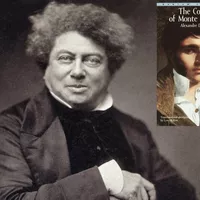Chapter 15. Number 34 and Number 27 (2)
Rage supplanted religious fervor. Dantes uttered blasphemies that made his jailer recoil with horror, dashed himself furiously against the walls of his prison, wreaked his anger upon everything, and chiefly upon himself, so that the least thing,--a grain of sand, a straw, or a breath of air that annoyed him, led to paroxysms of fury. Then the letter that Villefort had showed to him recurred to his mind, and every line gleamed forth in fiery letters on the wall like the mene tekel upharsin of Belshazzar. He told himself that it was the enmity of man, and not the vengeance of heaven, that had thus plunged him into the deepest misery. He consigned his unknown persecutors to the most horrible tortures he could imagine, and found them all insufficient, because after torture came death, and after death, if not repose, at least the boon of unconsciousness.
By dint of constantly dwelling on the idea that tranquillity was death, and if punishment were the end in view other tortures than death must be invented, he began to reflect on suicide. Unhappy he, who, on the brink of misfortune, broods over ideas like these!
Before him is a dead sea that stretches in azure calm before the eye; but he who unwarily ventures within its embrace finds himself struggling with a monster that would drag him down to perdition. Once thus ensnared, unless the protecting hand of God snatch him thence, all is over, and his struggles but tend to hasten his destruction. This state of mental anguish is, however, less terrible than the sufferings that precede or the punishment that possibly will follow. There is a sort of consolation at the contemplation of the yawning abyss, at the bottom of which lie darkness and obscurity.
Edmond found some solace in these ideas. All his sorrows, all his sufferings, with their train of gloomy spectres, fled from his cell when the angel of death seemed about to enter. Dantes reviewed his past life with composure, and, looking forward with terror to his future existence, chose that middle line that seemed to afford him a refuge.
"Sometimes," said he, "in my voyages, when I was a man and commanded other men, I have seen the heavens overcast, the sea rage and foam, the storm arise, and, like a monstrous bird, beating the two horizons with its wings. Then I felt that my vessel was a vain refuge, that trembled and shook before the tempest. Soon the fury of the waves and the sight of the sharp rocks announced the approach of death, and death then terrified me, and I used all my skill and intelligence as a man and a sailor to struggle against the wrath of God. But I did so because I was happy, because I had not courted death, because to be cast upon a bed of rocks and seaweed seemed terrible, because I was unwilling that I, a creature made for the service of God, should serve for food to the gulls and ravens. But now it is different; I have lost all that bound me to life, death smiles and invites me to repose; I die after my own manner, I die exhausted and broken-spirited, as I fall asleep when I have paced three thousand times round my cell." No sooner had this idea taken possession of him than he became more composed, arranged his couch to the best of his power, ate little and slept less, and found existence almost supportable, because he felt that he could throw it off at pleasure, like a worn-out garment. Two methods of self-destruction were at his disposal. He could hang himself with his handkerchief to the window bars, or refuse food and die of starvation. But the first was repugnant to him. Dantes had always entertained the greatest horror of pirates, who are hung up to the yard-arm; he would not die by what seemed an infamous death. He resolved to adopt the second, and began that day to carry out his resolve. Nearly four years had passed away; at the end of the second he had ceased to mark the lapse of time.
Dantes said, "I wish to die," and had chosen the manner of his death, and fearful of changing his mind, he had taken an oath to die. "When my morning and evening meals are brought," thought he, "I will cast them out of the window, and they will think that I have eaten them."

